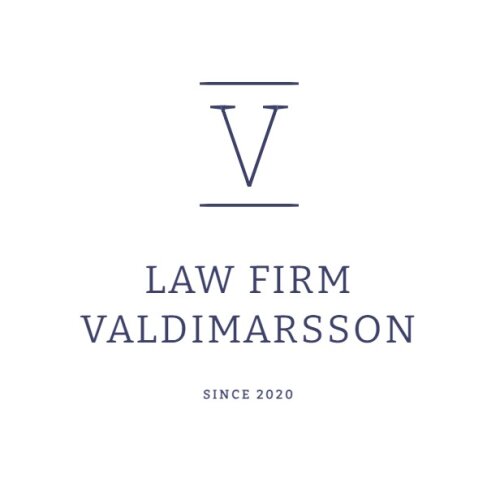Best Renewable & Alternative Energy Lawyers in Reykjavik
Share your needs with us, get contacted by law firms.
Free. Takes 2 min.
List of the best lawyers in Reykjavik, Iceland
About Renewable & Alternative Energy Law in Reykjavik, Iceland
Reykjavik, the capital of Iceland, is internationally recognized for its leadership in renewable energy. Nearly all electricity and heating needs in Reykjavik are met with sustainable sources, primarily geothermal and hydropower. The legal framework governing renewable and alternative energy in Reykjavik is designed to promote sustainability, environmental responsibility, and innovation. Laws and regulations in this area ensure the responsible use of natural resources, foster investment in new technologies, and establish clear guidelines for energy producers, developers, and consumers.
Why You May Need a Lawyer
Navigating the legal landscape of renewable and alternative energy in Reykjavik can be complex, especially due to the technical, regulatory, and environmental aspects involved. You might need legal help in scenarios such as:
- Starting or investing in an energy project - whether geothermal, hydro, wind, or solar
- Obtaining permits and regulatory approval for energy development or infrastructure expansion
- Negotiating contracts for power purchase agreements or joint ventures
- Securing intellectual property rights connected to new energy technologies
- Addressing land use, zoning, or environmental impact assessment concerns
- Ensuring compliance with both local Reykjavik and national Icelandic energy laws
- Resolving disputes between developers, regulators, or landowners
A qualified lawyer can provide invaluable guidance to protect your interests and ensure regulatory compliance throughout your project.
Local Laws Overview
Reykjavik's approach to renewable and alternative energy is heavily influenced by Icelandic national law, but there are certain local aspects to be aware of:
- The Electricity Act and the Energy Act are the central pieces of legislation governing access, production, and distribution of energy in Iceland, including Reykjavik.
- Municipal authorities in Reykjavik often set additional requirements regarding environmental impact assessments, urban development plans, and public participation for energy projects within the city limits.
- Geothermal resources, which are significant in Reykjavik, require permits and compliance with strict usage guidelines to ensure sustainable exploitation and environmental protection.
- Hydropower and other renewable projects must adhere to environmental protection laws, including comprehensive studies and public consultation before projects are approved.
- Every energy facility in Reykjavik must comply with safety, environmental, and technical standards enforced by relevant authorities.
Frequently Asked Questions
What types of renewable energy are most common in Reykjavik?
The most common renewable energy sources in Reykjavik are geothermal energy and hydropower. These supply almost all of the city's electricity and heating needs.
How are geothermal resources regulated?
Geothermal resources are regulated at both the national and municipal levels. Permits are required for exploration and use, and there are strict rules about sustainability and environmental protection.
Can private individuals or businesses invest in renewable energy projects?
Yes, private individuals and companies can invest in renewable energy projects, but they must comply with licensing requirements and regulations set by Icelandic authorities.
What are the key permits needed to develop a renewable energy project in Reykjavik?
Key permits typically include land use and development permits, environmental impact assessment approvals, and operational licenses from the National Energy Authority and municipal agencies.
How do property and land rights affect renewable energy development?
Land rights are crucial, especially for geothermal and hydropower projects. Developers must obtain consent from landowners and may need to negotiate leases or easements.
Are there incentives for renewable energy investment in Reykjavik?
Iceland has various incentives to promote renewable energy, including grants, favorable tax treatment, and support for research and innovation, depending on the project scale and impact.
What environmental regulations must renewable energy projects follow?
Projects must undergo environmental impact assessments and adhere to strict rules designed to protect natural resources, biodiversity, and public health.
Who enforces renewable energy laws in Reykjavik?
Enforcement is primarily handled by the National Energy Authority (Orkustofnun), the Environment Agency of Iceland, and municipal authorities such as the Reykjavik City Council.
What happens if a project does not comply with regulations?
Non-compliance can result in fines, revocation of permits, or requirements to halt or modify operations. Legal proceedings may also follow serious breaches.
How can a lawyer help with renewable energy projects in Reykjavik?
A lawyer can assist with project vetting, permit applications, contract drafting, dispute resolution, compliance audits, and providing guidance through the regulatory process.
Additional Resources
Several organizations and government bodies offer information and support for renewable and alternative energy projects in Reykjavik:
- Orkustofnun (National Energy Authority): Regulates energy resources and offers guidance on licensing and permits
- Environment Agency of Iceland: Oversees environmental protection regulations and impact assessments
- Reykjavik City Council Environmental and Planning Departments: Handles local zoning, planning, and urban development approvals
- Innovation Center Iceland: Provides support for startups and innovators in the renewable energy sector
- Icelandic Association for Renewable Energy: Offers networking and informational resources
Next Steps
If you are considering a renewable or alternative energy project in Reykjavik, or you need assistance with compliance, permits, or resolving legal disputes, your first step should be to consult with a specialized lawyer. Gather all relevant documents, including project plans and correspondence with government agencies. Make a list of your questions and objectives, then contact a law firm experienced in Icelandic energy law. A qualified attorney can help you navigate regulations, secure necessary approvals, and protect your interests throughout the process.
Lawzana helps you find the best lawyers and law firms in Reykjavik through a curated and pre-screened list of qualified legal professionals. Our platform offers rankings and detailed profiles of attorneys and law firms, allowing you to compare based on practice areas, including Renewable & Alternative Energy, experience, and client feedback.
Each profile includes a description of the firm's areas of practice, client reviews, team members and partners, year of establishment, spoken languages, office locations, contact information, social media presence, and any published articles or resources. Most firms on our platform speak English and are experienced in both local and international legal matters.
Get a quote from top-rated law firms in Reykjavik, Iceland — quickly, securely, and without unnecessary hassle.
Disclaimer:
The information provided on this page is for general informational purposes only and does not constitute legal advice. While we strive to ensure the accuracy and relevance of the content, legal information may change over time, and interpretations of the law can vary. You should always consult with a qualified legal professional for advice specific to your situation.
We disclaim all liability for actions taken or not taken based on the content of this page. If you believe any information is incorrect or outdated, please contact us, and we will review and update it where appropriate.
















